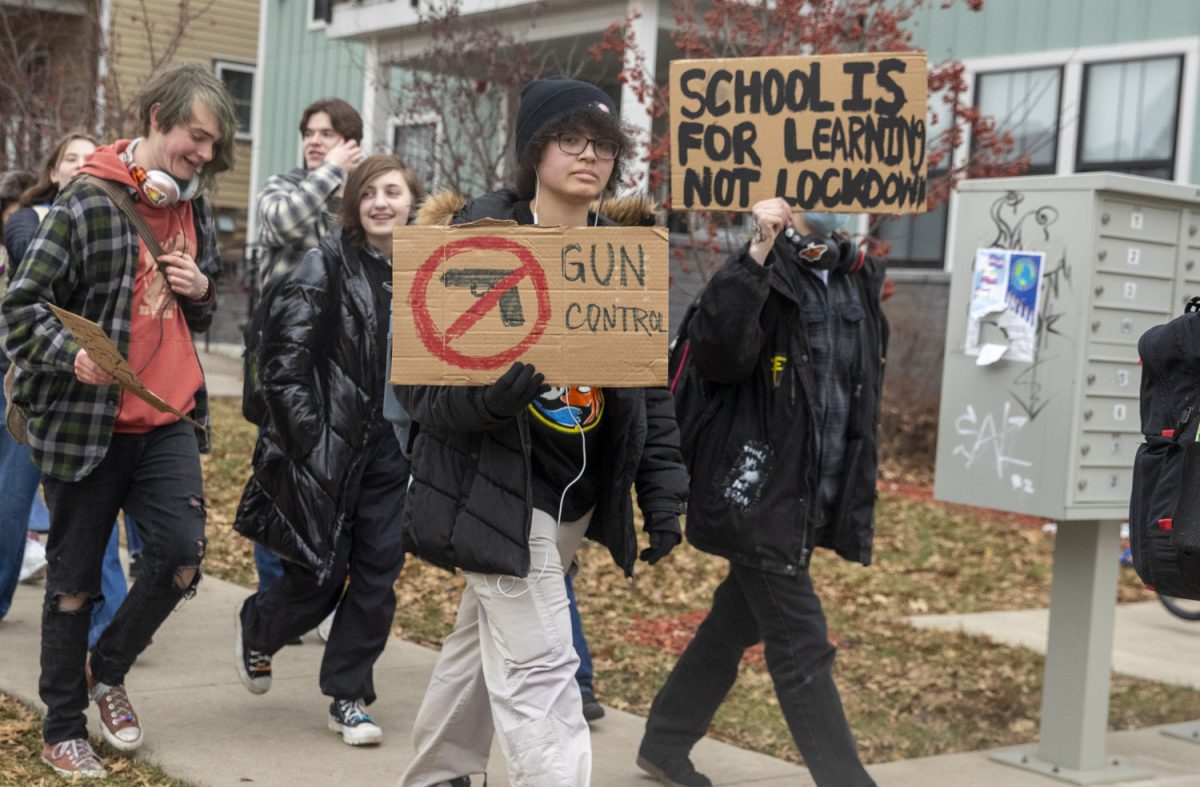Drugs have become a hot-button topic in the past few years. Although they’ve always seemed to find a place in the political forefront, the discussion about drugs has made a notable shift. At the outset of the “War on Drugs,” in 1971, the focus was on how to best punish the individuals in the United States who were using drugs; it was about battling a dangerous social issue that weighed heavy on the American public.
Today, although drugs still carry an immense social burden and cause problems for users and their families, the discussion is no longer about how terrible they are for society. The discussion focuses on how the war has been used as a method to create, enforce, and engrain institutional racism in American society.
There have been scenarios that have unfolded in Iowa that have mirrored the increased militarization of police departments found in D.C, such as Washington County’s possession of a military-grade vehicle — a story that was well-documented by The Daily Iowan. The issue of increased militarization of local police forces has come to a head in the last three years, especially as the number of police shootings across the country has seemed to rise.
The issue of police shootings (and “justifiable fatalities”) is more complex than it seems, however. At first glance, many sources indicate that in 2015, police-caused fatalities were at a 20-year high, but because of complications in the FBI’s definition of justified fatalities, the number may not be nearly as high as it seems. What has increased — undeniably — is the media coverage of these events. And public outcry against police brutality has increased in proportion with this coverage spike. With the rapid growth of movements such as Black Lives Matter, it is hard for police shootings (just or unjust) to go unnoticed.
But even if it is simply increased coverage and not increased instance, the aggressive nature of police forces across the United States must change. In the cases outlined by the Washington Post, there have been clear violations of the Fourth Amendment.
In the article, Eugene O’Donnell, a professor at the John Jay College of Criminal Justice in New York City and a former NYPD officer and prosecutor, talks about the violations. He says, “It’s a mass-produced, search-and-recovery operation. It’s an assembly line. It’s not a progressive policy, and it imperils police and people alike.”
That these operations “imperil police” is an interesting comment that may too easily be overlooked. In today’s American society, “To Protect and Serve” appears to be one of the greatest lies of sovereign government. It’s not — but it appears to be.
As police have become more aggressive, protection and service seem to be a reference more to their own well-being than to that of their community members. The actions of certain police forces across the country have tainted the collective view of these officials, and piling more aggression on top of these scenarios has only served to stoke the fire.
The Post article specifically referenced Washington, D.C., search warrants, but this issue hits home for every community in the United States, and it isn’t getting any better.









